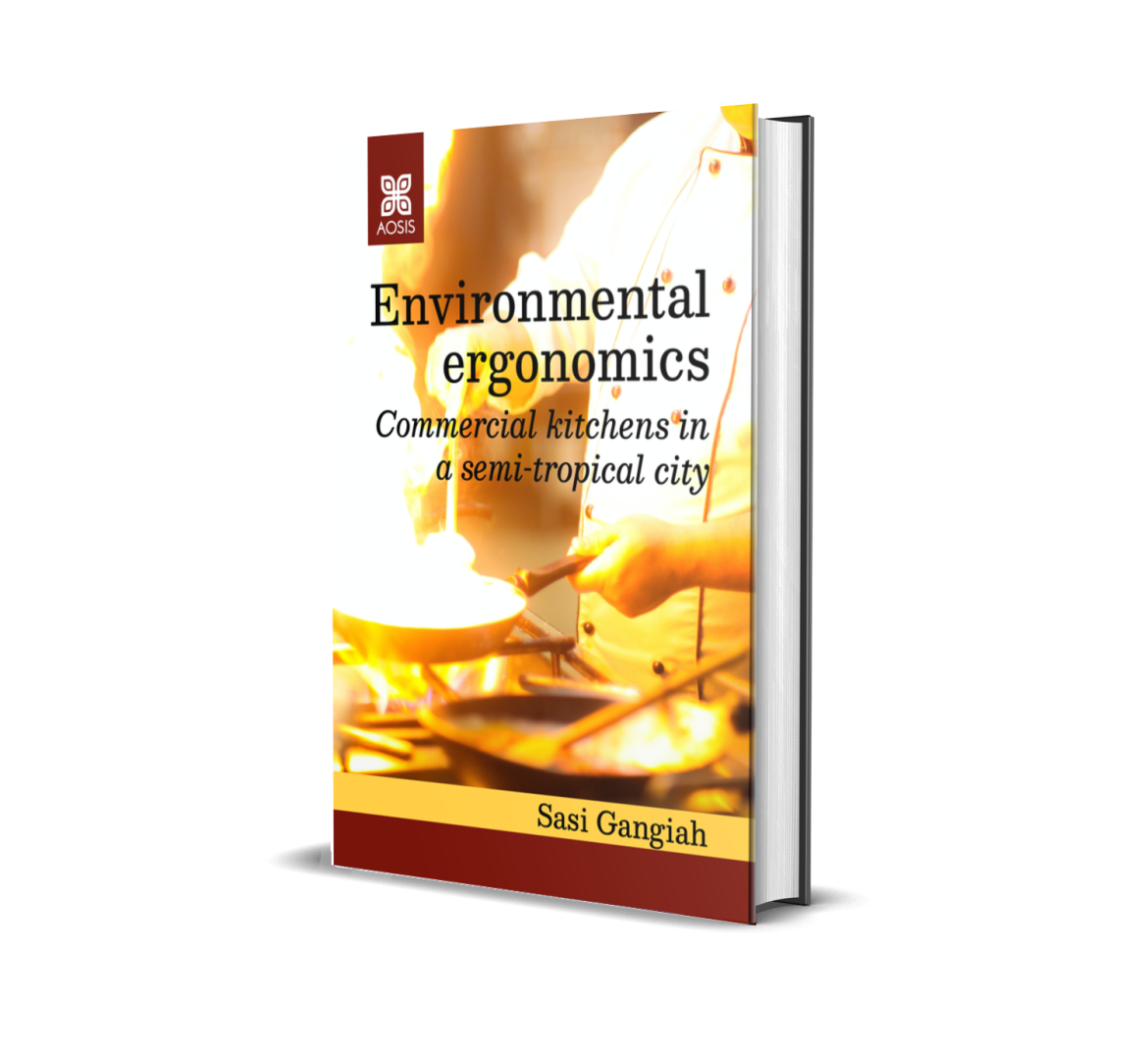Environmental ergonomics: Commercial kitchens in a semi-tropical city is published by AOSIS Scholarly Books.
This book focuses on the environmental ergonomics of restaurant kitchens and the challenges related hereto in a semitropical city from a chef’s perspective. It establishes the urgent need for commercial kitchens to be conducive to the well-being of kitchen workers as heat illness is unreported in this industry. This research is relevant from an occupational health and safety point of view.
It evaluates the indoor environmental quality (IEQ) parameters such as heat, ventilation and humidity, noise and lighting in kitchens, cognisant that with different cuisines, the kitchen loads are different. The goals of occupational safety are health intervention for worker comfort to enhanced work performance. The book generates new knowledge regarding the factors affecting the body mass index of kitchen workers, prediction of heat and humidity near cooking stoves, discomfort near ovens, lighting in preparation areas and factors affecting reaction to stove noise. The book implements an exploratory design with multiple case studies.
Copyright (c) 2022 Sasi Gangiah (Author)
The core idea and concern of this book is to promote the health, safety and comfort of commercial kitchen workers and to increase the productivity, efficiency and quality of work for food industry business. This book produces awareness through interdisciplinary scientific study and analysis on IEQ parameters such as temperature, heat, humidity, lighting, ventilation, noise, and carbon dioxide (CO2) and carbon monoxide (CO) levels and the influence of these on the comfort of work and well-being of workers. The food service workers’ age, gender, ethnicity, physiology and psychology are also considered with respect to IEQ parameters. The study on ‘environmental ergonomics of commercial kitchens’ is restricted to Durban, a semi-tropical city. The methodology, general importance, outcomes and recommendations also assist the food production sector and are applicable to similar working environments and remain relevant to improving work performance. This book investigates the collected data with multiple case studies to explore differences within and between cases. The statistical data analysis and detailed description provide the reader with natural and social scientific research concepts and skill to understand the information both qualitatively and quantitatively. As in any organization, worker satisfaction is a basic element for better-quality survival, performance, and production. Environmental ergonomics: Commercial kitchens in a semi-tropical city offers insightful environmental contributions to improving commercial kitchen design and awareness among scholars and peers for developing an environmental quality policy and standard operating procedures.
Dr Tharmaraj Jesan, Environmental Survey Laboratory, Kalpakkam, India.

